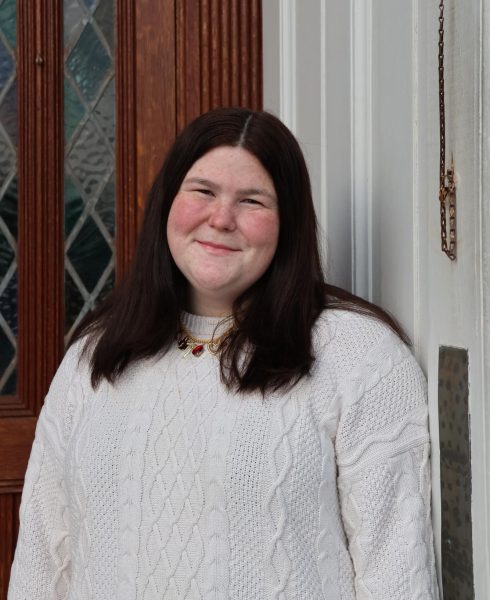Women’s History Month Recap
April 5, 2023
When many college students think about the month of March, the first things to cross their minds are March Madness and St. Patrick’s Day. Many tend to forget that March is the month that celebrates the inequalities and amazing accomplishments of women throughout the world. First celebrated in March of 1987, Women’s History Month has become a pivotal step towards gender equality in the United States.
“I think it is really important that we celebrate Women’s History Month,” freshman Kara McGoldrick said. “It allows us time as a nation to reflect, as well as look at the changes that can continue to be made towards equality.”
This year, there were a multitude of events on Villanova’s campus to celebrate Women’s History Month. One of these events was a bake sale held by the student organization She’s The First, a club, which has branches across multiple colleges and universities, that raises money for women’s education in low-income countries. While She’s The First holds events throughout the year, this bake sale was extra meaningful, as it truly emphasized the importance of women’s education, as well as helped remind students on this campus that we are lucky to have the education we are receiving.
“When I went to the bake sale, I did not know what She’s The First did on campus,” freshman Alexandra Schuster said. “After talking to one of the club leaders, it made me realize how fortunate we are to be receiving this education, and that there are so many steps to take to ensure that equality for everyone, including those who may not be able to afford it or go to school due to their nation’s laws.”
As well as the She’s The First bake sale, events on campus included club meetings, speeches and outside guests coming onto campus to address students and professors.
On March 29th, 2023, Rev. Naomi Washington-Leapheart came to campus to address how she believes a womanist path can help end the white Christian church, and work towards ending racism in the church as a whole. During her visit, she focused on the idea of a womanist theology to help end these problems.
“After listening to Rev. Washington-Leapheart speak, not only did it open my eyes to the severity of the race issues within the church, but helped me see how this was of thinking, a womanist theology, can help stop this spread of misogyny and racism, and help change the way and make a difference,” freshman Claire Gaza said.
Both on campus, and throughout the nation as a whole, Women’s History Month this year helped to showcase the true message of the drive for equality across genders, races and sexual orientations, while ensuring that the general public became educated on how these historically have not happened.
Outside of clubs and organizations on campus, Villanova professors made an effort to include how marginalized women still are throughout the world.
“In my Faith, Reason, and Culture class, my professor showcased the gender wage gap throughout the nation. I knew it affected women but did not realize how many other factors were played into the amount someone got paid for a job, including how there are different gender wage gaps depending on one’s race and background as well,” freshman Betty Dorsey said. “It was very eye opening, and I am looking forward to the day where this is no longer an issue in America, or throughout any nation in the world.”
Dr. Heather Hicks is a professor of English and chair of the English Department at Villanova. Hicks believes that it is critical to ensure Women’s History Month is celebrated, and used to enlist change in this nation
“For fun, I’ve recently been reading a book of world history produced by the Smithsonian Institute,” she said. “It starts with the earliest hominids and moves all the way to the present and is 512 pages long. Yet it only mentions women a handful of times—a queen here, an artist or writer there. As a very conventional history text, focusing largely on wars, empires, etc., it gives virtually no attention to 50% of the world’s population that was clearly shaping the course of world events. That’s why we still need Women’s History Month.”
Villanova’s student organizations and professors, as well as the University, did a great job showcasing the importance of Women’s History Month.
“Every month should be Women’s History Month,” Hicks said.


